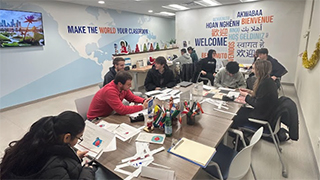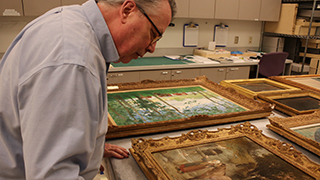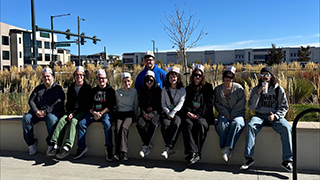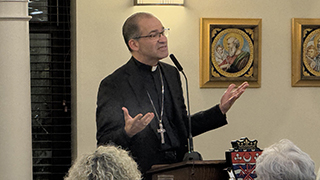Final Chemistry PhD Seminar - Mariana Phillips - Seton Hall University
Thursday, April 6, 2017
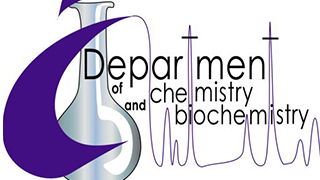
The seminar will be held at 5:45 p.m. on Tuesday April 11, 2017 in the Helen Lerner Amphitheater, McNulty Hall, Science and Technology Center, Seton Hall University. The University Community is invited.
Mariana Phillips was born in Mexico City, Mexico where she received her BSc in Food Chemistry from Universidad LaSalle, Mexico, in 1998. Phillips's academic career began as a science teacher of Physics and Chemistry, focusing particularly on developing a stimulating scientific learning environment for middle school students. Phillips relocated to the United States in 2005 with her family to pursue new scientific career goals. In 2012, she joined the Department of Chemistry and Biochemistry at Seton Hall University, to work on her PhD under the supervision of Profs. David Sabatino and Constantine Bitsaktsis. During her PhD studies, Phillips has developed methods in chemical biology for the production of novel immunstimulatory peptides. Phillips has also gained expertise in working with protein biologics, including antibody mimics for cancer-targeting immunotherapy applications. In 2015, Phillips received her MS degree in Biochemistry following her successful matriculation into the PhD program. In 2016-17, Phillips initiated a productive research collaboration with Dr. Robert Korngold at Hackensack UMC to investigate the biological properties of immunstimualtory constructs in vitro and in vivo. Taken together, Phillips accomplishments during her PhD studies have led to the generation of two publications, a book chapter currently in press, a research grant approved for funding, a travel grant award for attending the American Peptide Symposium in 2015 and more than five presentations and proceedings at local and national conferences. Phillips expects to receive her PhD in Biochemsitry in May 2017.
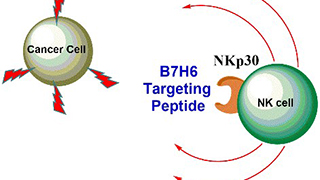
The Department of Chemistry and Biochemistry offers BS, MS and PhD degrees with specializations in all areas of chemistry. Our unique research environment, including traditional full-time students and part-time students is designed to foster collaborations with industry and colleagues in other disciplines. The Rose Mercadante Seminar Series is named for Rose Mercadante, the departmental secretary for over 40 years, in honor of our alumni, her "boys and girls".



